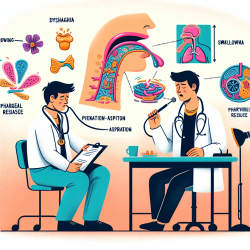As a practitioner in the field of speech-language pathology, staying abreast of the latest research is crucial for improving therapeutic outcomes, especially when delivering online therapy services. The study "Mental Health Therapy Protocols and eHealth Design: Focus Group Study" provides invaluable insights that can be directly applied to enhance your practice.
The research highlights three main recommendations for eHealth designers and therapists to better align eHealth interventions with real-world therapeutic practices:
- Study and Copy Applied Protocol Parts: Therapists and patients often do not strictly follow therapy protocols. Instead, they adapt and personalize these protocols based on individual needs. By studying the parts of the protocol that are actually used, eHealth designers can ensure that these crucial elements are included in online therapy platforms.
- Co-Design with Stakeholders: The study emphasizes the importance of involving both therapists and patients in the design process. This co-design approach allows for the identification of protocol components that should be open for user customization, enhancing the therapeutic alliance and engagement.
- Evaluate Unused Protocol Components: Some components of therapy protocols may not be applied in practice but could still be essential for therapeutic effectiveness. It is recommended to investigate these components and determine their necessity in the eHealth design.
Implementing these recommendations can lead to more personalized and effective online therapy services, which are particularly beneficial for children. Personalization in therapy not only enhances engagement but also aligns therapeutic interventions with the unique needs of each child, leading to better outcomes.
Moreover, understanding the reasons behind personalization—such as enhancing the therapeutic alliance and addressing individual patient needs—can help practitioners make more informed decisions when adapting therapy protocols. This approach ensures that the therapy remains flexible and responsive to the dynamic needs of patients.
To read the original research paper, please follow this link: Mental Health Therapy Protocols and eHealth Design: Focus Group Study.










